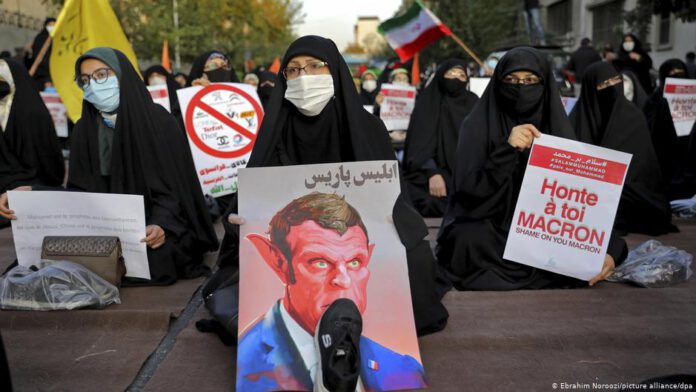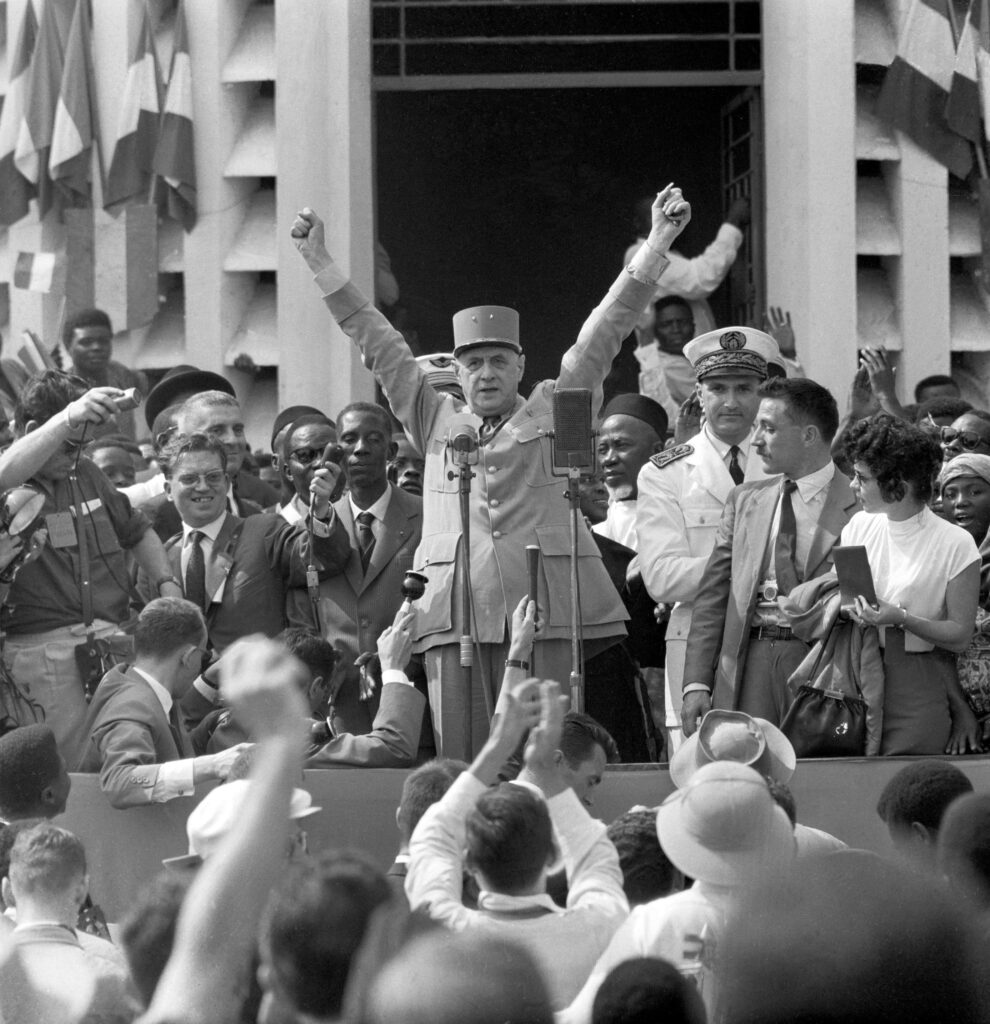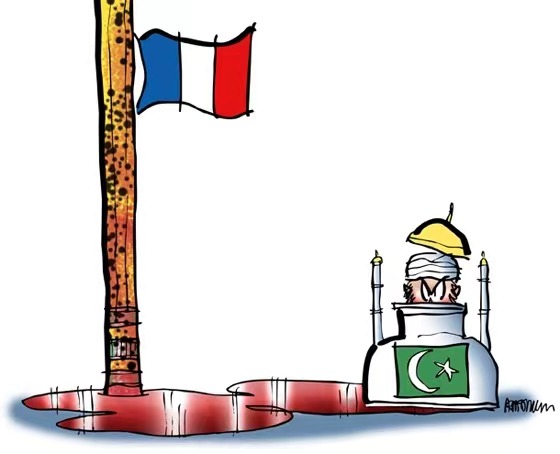
On 21 April, The famous French conservative magazine Valeurs Actuelles published an open letter entitled “for a return of the honor of our rulers”, written by 20 veterans. The positions of most of them were from brigadier general to lieutenant general level, covering navy, land force, air force, and even French Foreign Legion.

France is one of several European countries struggling with the increasing terrorism, police violence, racial discrimination, anti-Semitism, Islamic separatism, and terrorism for decades of years, which gets worse during the COVID-19 epidemic. These influential veterans believe that “The hour is serious, France is in peril.”
Subsequently, these veterans pointed out that most of the social chaos in France are firstly due to separatism in the name of anti-racialism, and secondly due to the rising integration among politics, society, and religion promoted by Islamic extremists, and the two causes have very tight connections. Without immediate, necessary and determined measures, they believe that France will no longer be the French Republic.
“Who would have predicted ten years ago that a teacher would one day be beheaded when he left college?” questioned by the veterans, and they criticized the over-tolerance and inaction from the current French government since “those who run our country find the courage to eradicate these dangers. To do this, it is often enough to apply existing laws without weakness. Remember that, like us, a large majority of our fellow citizens are overwhelmed by your dawdling and guilty silences.” And they commented that “if nothing is done, laxity will continue to spread inexorably in society, ultimately causing an explosion and the intervention of our active comrades in a perilous mission of protecting our civilizational values and safeguarding our compatriots on the national territory.”
Their warning is not nonsense, although French soldiers have a long tradition of non-interference in political affairs, and even have the nickname “La Grande Muette”. But just over 60 years ago, the French army once launched the famous “May 1958 crisis,” which directly led to the collapse of the Fourth Republic.

In 1958, French governance in Algeria began to loosen. At that time, the French army stationed in Algeria suspected that the government would abandon them, so they began to prepare for a political replacement and threatened to launch a civil war.
To avoid the outbreak of a full-scale civil war, the French government finally compromised with the soldiers and handed over the power of the government to General de Gaulle, who was trusted by the army. France has since entered the period of the Fifth Republic, under the consistent monitoring from the military force.
However, after that, de Gaulle not only failed to contain Algeria’s crisis but also accelerated the process of Algeria’s independence, making Algeria finally declared its independence in 1962, which disappointed soldiers who wished to strengthen the national influence and cultural integration, therefore they even formed an assassination team and launched at least four assassinations against the de Gaulle.
Because of the above period of history, the publication of this letter causes an uproar in French society since in reality, the French government not only doesn’t contain well the development of separatism and Islamic extremism but also always gives the late response and ineffective solution after the attacks, therefore, to the public, the soldiers may want to correct the direction of the country again like last time.
According to an investigation conducted by French media Le Parisien, besides the 20 veterans, there are other 100 senior military officers and more than a thousand other military personnels signed the open letter as well, and their names can be found on a military blog called Place d’Armes. Le Pen is the first politician to give a response to the letter, and with a positive attitude.According to an investigation conducted by French media Le Parisien, besides the 20 veterans, there are other 100 senior military officers and more than a thousand other military personnels signed the open letter as well, and their names can be found on a military blog called Place d’Armes. Le Pen is the first politician to give a response to the letter, and with a positive attitude.
The French Minister of the Armed Force, Florence Parly, condemning the actions of these veterans is an insult to all serving soldiers, inciting rebellion, or at least spreading a sense of division. And she claimed that If she finds serving soldiers on the signed list, sanctions will be imposed.

Pali also condemned Le Pen’s welcome to the open letter, emphasizing that the military does not exist for elections, but to defend the country. French Finance Secretary Agnès Pannier-Runacher said that the May 1958 crisis years ago was also promoted by extreme rightists like Le Pen and warned her not to act rashly.
At a press conference on 28 April, the French Prime Minister Castel strongly condemned this open letter as violating all republican principles and the honor and duty of military personnel. He also emphasized that this letter can only represent the views of their signatories, not the entire army.
Finally, the French Minister of the Interior Darmanin, also attended the press conference, mainly talking about anti-terrorism issues. He produced a draft anti-terrorism law, which provides a series of counter-terrorism measures, including monitoring certain prisoners who have been released from prison, or closing places of worship that are considered problematic. The new law aims to strengthen network surveillance to identify potential terrorists.
However, nearly a week after the publication of this open letter, as the president of the French Republic, Macron, who was regarded as the target of public criticism, did not give a comment at all, which also caused many people’s doubts and dissatisfaction.
With the increasing amounts of extreme Islamists in the country, the current French republic hardly maintains its core values as decades years before, and doesn’t want to accept the religious influence to the society and country, making the nation stuck in this dilemma – can’t go where it wants to go, and can’t leave where it wants to leave.
(Source: Valeurs Actuelles, New Statesman, Mark Armstrong Illustration, Le Parisien)



